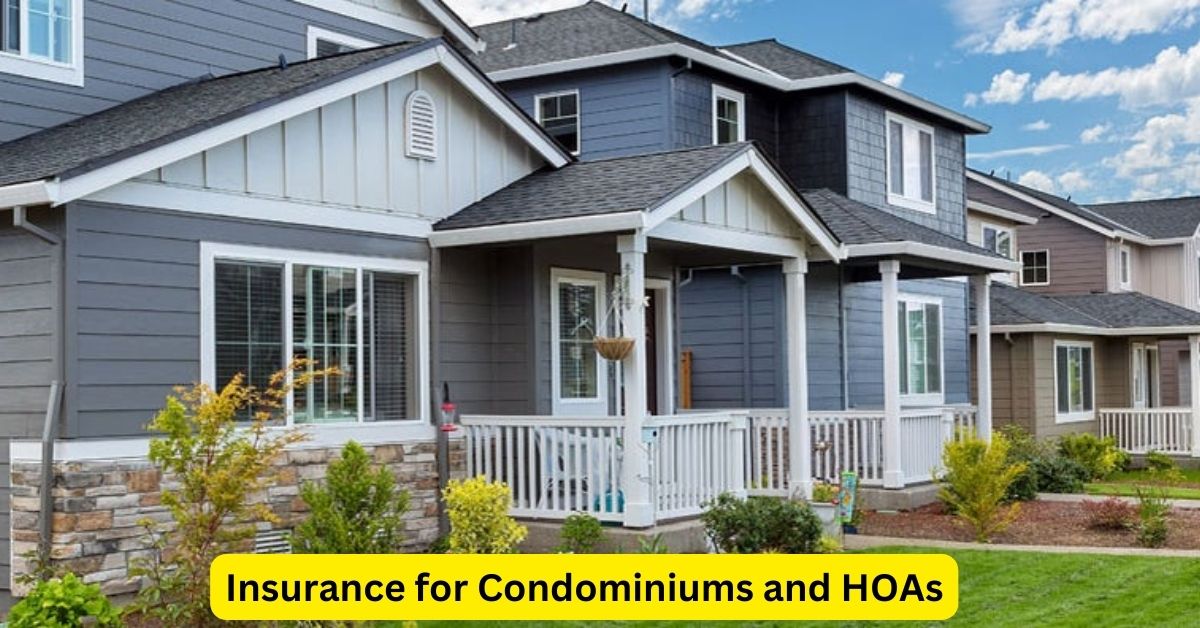Owning a condominium or being part of a homeowners association (HOA) comes with unique benefits and responsibilities. While these properties often provide a sense of community and shared amenities, they also present specific risks and liabilities that require specialized insurance coverage. Insurance for condominiums and HOAs is essential to protect both individual unit owners and the collective interests of the community. This article explores the types of insurance coverage available and their importance in safeguarding condominium investments.
Understanding the Risks Faced by Condominiums and HOAs
Condominium associations and HOAs manage common areas and facilities shared by residents. They face a variety of risks, including:
- Property Damage: Natural disasters, fires, vandalism, and accidents can cause significant damage to common areas such as lobbies, pools, roofs, and walkways. Repairs can be costly and affect the entire community.
- Liability Claims: If someone is injured in a common area or due to negligence in maintenance, the association could face legal claims. For instance, a slip-and-fall accident on an icy walkway might lead to lawsuits against the HOA or condominium association.
- Building Code Compliance: Older condominiums may need upgrades to comply with current building codes. Insurance can help cover the costs associated with bringing a property up to standard.
- Loss of Shared Amenities: Damage to shared amenities like gyms, pools, or recreational areas can disrupt community life and lead to financial losses if repairs are delayed.
- Directors and Officers Liability: Board members of HOAs or condominium associations can be held liable for decisions that negatively impact the community. Lawsuits may arise from alleged mismanagement or failure to enforce rules.
Types of Insurance Coverage for Condominiums and HOAs
To effectively manage these risks, condominium associations and HOAs should consider several key insurance coverages:
- Master Insurance Policy: This is a comprehensive policy that covers the common areas and structures of the condominium or community. It typically includes property damage coverage for buildings, walkways, and shared facilities, protecting the community’s physical assets from fire, storms, and vandalism.
- General Liability Insurance: This coverage protects against third-party claims of bodily injury or property damage occurring in common areas. It covers legal fees, medical expenses, and settlements, safeguarding the association from costly liability claims.
- Directors and Officers (D&O) Liability Insurance: D&O insurance provides protection for board members against claims related to their management decisions. This coverage is vital for defending against lawsuits alleging wrongful acts, financial mismanagement, or failure to adhere to bylaws.
- Fidelity Bond/Crime Insurance: This insurance protects the association against financial losses due to fraudulent or dishonest acts by board members or employees. It covers theft, embezzlement, and other crimes that can impact the association’s finances.
- Loss Assessment Coverage: This optional coverage helps individual unit owners pay for special assessments levied by the association for damages not fully covered by the master policy. It is particularly beneficial in situations where a large deductible or inadequate coverage requires additional contributions from unit owners.
- Flood and Earthquake Insurance: Standard insurance policies may exclude coverage for floods and earthquakes. Associations in high-risk areas should consider separate policies to protect against these specific natural disasters.
The Importance of Insurance for Condominiums and HOAs
Insurance for condominiums and HOAs is not just about protecting property; it’s about ensuring the financial stability and well-being of the entire community. With the right insurance coverage in place, associations can manage risks effectively, address unexpected events, and maintain a harmonious living environment.
In conclusion, insurance for condominiums and HOAs is an essential aspect of community management. It provides crucial protection against property damage, liability claims, and financial mismanagement, ensuring that both individual owners and associations can navigate challenges with confidence. By investing in comprehensive insurance, condominium associations and HOAs can safeguard their communities and foster a secure, thriving living environment for all residents.

